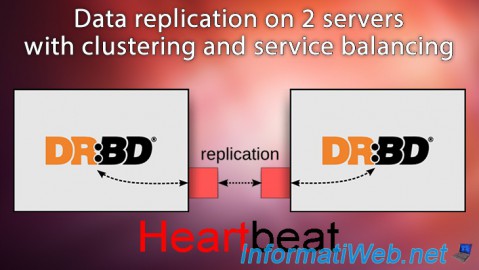DRBD
- Storage
- 17 July 2017 at 09:25 UTC

- Package name : drbd8-utils
- Publisher : LINBIT
- Documentation : See the official documentation of DRBD
- Categorie : Storage
- OS : Linux
- License : Free
DRBD (Distributed Replicated Block Device) is an open-source Linux kernel driver that provides distributed, replicated block storage. It is mainly used in high availability environments to ensure data redundancy and service continuity by mirroring data between block devices on different servers.
Synchronous and Asynchronous Data Replication
With DRBD, you can configure data replication in synchronous mode, where writes complete only after being committed on local and remote devices, ensuring full data consistency. Alternatively, asynchronous mode allows replication with a delay to optimize performance while still safeguarding data on remote nodes.
Flexible Management and Administration
You have access to powerful command-line tools such as drbdadm and drbdsetup to configure and manage DRBD resources. These tools let you define replication targets, manage synchronization, and monitor real-time status, providing centralized and adaptable control over your storage replication.
Integration with High Availability and Software-Defined Storage
DRBD integrates smoothly with high availability clusters, supporting traditional file systems and cluster file systems like GFS2 or OCFS2. From version 9 onwards, it also supports multi-node replication (up to 16 nodes) and software-defined storage pools, making it suitable for modern cloud and virtualized infrastructures.
DRBD offers a robust and efficient block-level replication solution for Linux systems, helping you maintain data availability and integrity across your critical infrastructure.
